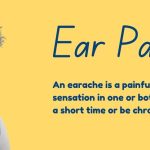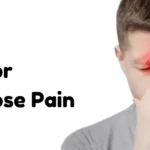In this post you can learn about 5+ causes & Best Treatment options of Tooth Pain (Toothache):
Tooth sensibility, mouth harm, decay, an infection, or other problems can all cause tooth pain. The intensity of your tooth pain does not always indicate the seriousness of the issue.
A tooth pain may be dull and achy or severe and throbbing. It may be challenging to chew, focus, or even fall asleep.
Even when a seemingly minor issue is to blame for tooth pain, it can still be very uncomfortable. Because of this, it may be difficult to determine when tooth requires dental attention.
Regardless of what over-the-counter medication like (tapentadol tablet) you take for some comfort, it can be challenging to bite and chew when you have toothache, whether it is intense and agonizing or dull and achy.
What Is Tooth Pain?
Pain in or near your tooth is referred to as tooth pain. A short irritation of the gums that you may cure at home can cause minor toothache.
Cavities, infections, or other dental disorders that won’t heal on their own cause more severe tooth pain (Acute Pain). If the discomfort is severe, you should seek specialist dental care.
Whenever there is an issue with your teeth or gums, it can result in tooth pain and swelling, which can be painful and uncomfortable.
Tooth ache is challenging to ignore, whether it is quick and acute or chronic pain and persistent. When the nerve (Nerve Pain) in the tooth’s root or the area around it becomes irritated.
It causes toothache or tooth pain. The most typical causes of dental discomfort are teeth getting sick, decay, accident, or tooth loss.
What Are The Causes Of Tooth Pain?
You may experience tooth pain as a result of dental issues like:
- Dental decay
- Dental damage
- An abscessed tooth
- Unfastened filling
- A faulty filling
- Interior of your tooth, pulp inflammation
- Shrinking gums
- Tooth abscess
- Gum disease
- Tooth decay
What is The Best Tooth Pain Treatment?
Oral Devices
Your dentist might advise using an oral appliance, such as a mouth guard, at night if you clench or grind your teeth while you sleep.
The least expensive solutions are those that you can buy over the counter that fit over your teeth, but bespoke guards created from molds of your teeth are often more pleasant and long-lasting.
A mouth guard will shield your teeth from harm, but it won’t lessen the frequency of bruxism attacks. In light of this, you might also want to work to address the tension, worry, and anger that are among your underlying bruxism causes.
Dental Procedures
You can require one of the various dental procedures depending on your situation.
Tooth Decay And Cavities:
Cutting to remove the deterioration and adding a filler to replace the missing materials.
Cracked Tooth:
According to the severity of the harm, a crown, a root canal, or a replacement as well may be necessary.
Abscess:
It is sliced open and the diseased pocket is emptied.
Irreversible Pulpitis:
A crown is almost always necessary after a root canal for removing the diseased pulp.
At-Home Treatments for Tooth Pain
Obtaining a dentist’s appointment may occasionally take a few days or longer. Although you patiently await to be seen, try these at-home cures:
Clove Oil:
Dilute a few drops of clove oil in olive oil, apply to a cotton ball, and place it on the gums near your toothache for 5 to 10 minutes.
OTC Pain Relievers: You can take Tylenol, Advil, or Aleve as directed on the packaging.
Rinse: Use diluted peroxide of hydrogen or hot saltwater to gargle for about thirty seconds before spitting it out.
Ice: For approximately twenty minutes, place an ice pack or bag of frozen produce wrapped in a fresh towel on the outside jaw. Continue as necessary all day long.
What Are The Tooth Pain Symptoms?
Unexpected toothache is possible. It may result in minor to quite severe pain and discomfort. The discomfort may be intermittent, throbbing, or persistent. Also impacted are your head, ear (Ear Pain), and jaw.
When you have tooth pain, you might also:
- Swelling inside of your mouth and around your tooth.
- Your jaw and face swelling (Face Pain)
- Difficulty chewing
- Bleeding from the gums or teeth
- Intolerance to spicy, sour, or sweet foods
- Abscessed tooth.
- Cavities
- A damaged dental restoration
How Many Types of Tooth Pain?
According to the underlying cause, there are several types of tooth pain. Signs of toothache might vary, but they may include:
- A discomfort that is persistently dull
- An acute, stabbing toothache
- Severe dental discomfort
- Sensitive teeth
- Your gums swelling
- Headaches (Tension Headache)
- Fever
- Chills
- Foul taste or poor breath
Do you grind your teeth?
This is a frequent issue that is brought on by anxiety, sleep issues, or a biting problem. The enamel on your teeth might be worn down and even cracked if you crush your teeth as you sleep.
Can a toothache go away on its own?
In certain cases, tooth pain may go away on its own. For instance, if you hurt your gums when biting into something tough, it will probably go gone in a day or two.
However, a true toothache that comes from the tooth itself typically indicates that you have a problem that needs to be treated.
Can I prevent tooth pain?
Toothache can’t always be avoided. They occasionally happen for reasons beyond your control.
However, there are steps you can take to lower your risk:
- Use a soft-bristled toothbrush and fluoride toothpaste for cleaning your teeth two to three times every day.
- Every day, floss around your teeth.
- Twice daily, use an antimicrobial mouthwash.
- Reduce the amount of sugary food and drink you consume.
- Visit your dentist for regular cleanings and checks.
- Inquire with your dentist about fluoride applications and sealants.
How is tooth pain diagnosed?
Your dentist or medical professional will check your teeth, and they might do an x-ray as well. They will discuss your tooth history and inquire about the discomfort.
How can toothache be relieved in five minutes?
You can try washing with hydrogen peroxide, salty water, or wheatgrass to see if you can stop toothache in five minutes. The affected region can then be treated with clove oil, extract of vanilla, or clove paste.
Apply an ice pack or cold compress last. Consult the dentist if the discomfort persists or if it is severe.
How can I treat tooth pain without taking medicine?
It may or may not be easy to get rid of bad toothachewithout using the medicine, based on the reason for your toothache.
However, you can test whether cleaning your mouth with toothpaste, salt water, or hydrogen peroxide will help by brushing, flossing, and washing it afterward.




3 Comments